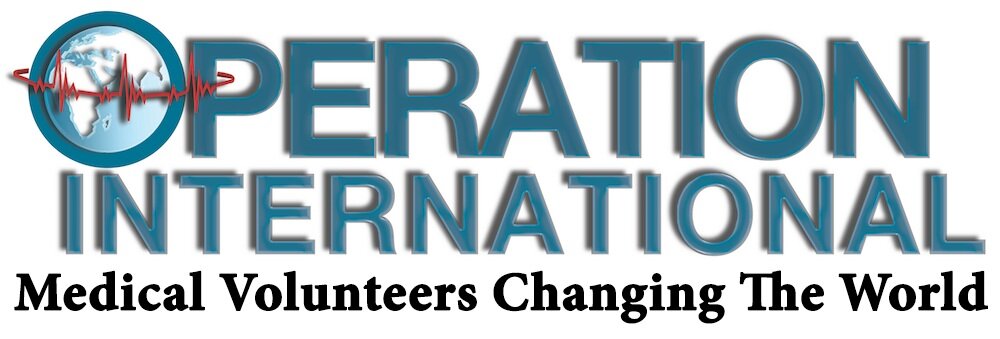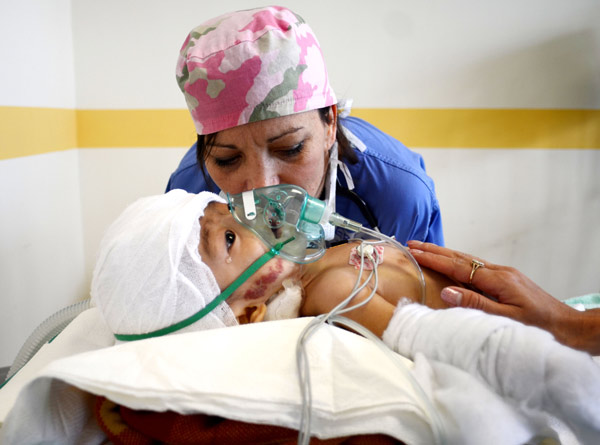Witness to Life’s Cruelty!
Team NY – Ecuador 2012
“As a post-anesthesia care unit (PACU) nurse I was delighted to accompany a team from Operation International to Ecuador on a mission to provide care for the underprivileged, and to teach the local doctors laparoscopic procedures. One particular family really struck me emotionally and personally, and as a mother myself, I felt compelled to share this story.
I came across a baby who was born prematurely and was now 4 months old, and his mother looked very young, I was told she was 19 years old. The baby suffered from fluid inside his brain, hydrocephalus, and a recent pneumonia. They had attempted to place shunts to drain the fluid that was causing the hydrocephalus, but were unable to intubate him for surgery. The local doctors in Ecuador asked our anesthesiologists if they could attempt intubation, and sure enough they accepted and it was successful.
This little baby was able to get the shunts that he needed, but unfortunately, the pneumonia was still a factor and after exubating him, breathing independently off the ventilator proved to be too much. We received him in the recovery room gasping loudly for air and using every muscle he had to breathe. Operation International team rushed to his side in attempt to re-intubate him, but the local doctors did not appear to be so worried. They calmly told us that they tried to do what they could for this baby but, they did not have the mechanical means, i.e. ventilator or the finances to keep this baby alive.
Being from the United States this was unheard of….we provide all means without even considering prognosis. It was mind blowing to know that they did not physically have a vent for the baby and no way to get one. Our intensive medicine doctor, Dr. Patel, talked them into allowing us to reintubate the baby at least for comfort measures and they listened. The baby was reintubated and Dr. Patel immediately went to work trying to find a local hospital that would have the equipment to provide for this baby. All efforts proved to be futile. We quickly learned that the private hospital would charge a thousand dollars, and with a poor prognosis, the local doctors discouraged it.
I watched and truly did not know how to feel. I understood that this was their practice and we were visitors in their country, but it was hard to accept. The mother was instructed to use the ambu bag and provide breaths to her child. The mother sat there with the ambu bag for hours caring for her son whose chance of survival was deemed nil. I saw tears running down her face, but she sat quietly and continued to provide breaths for her son.
The local resident surgeons told her that her son had no chance and that continue supporting his breath would only buy him time but would not save him. She accepted it, did not cry out or touch her son, just sat there. I, myself, wanted to throw myself on the floor but needed to care for other patients.
I realized that their culture was so different than ours and their acceptance is more willing than ours. Culturally and economically, the people of Ecuador are practical, realistic and accepting to the available resources. During the days, I saw many of Operation International team members trying to find ways to save this baby, and trying to help the mother. The resident doctors could tell that we were upset and they explained to us that this is how it is and “he maybe suffering now but he will soon be in a better place and will suffer no more.”
I saw one of our surgeons slip a donation in the mother’s pocket. By time we left he had been extubated and was slowly improving. We later learned via email that he eventually was discharged from the hospital alive and in good condition.
I will never forget this experience, as it made me more understanding and appreciative for what we have here. Thank you for this wonderful experience and letting me participate in giving to others. There is nothing greater!” — Erin


